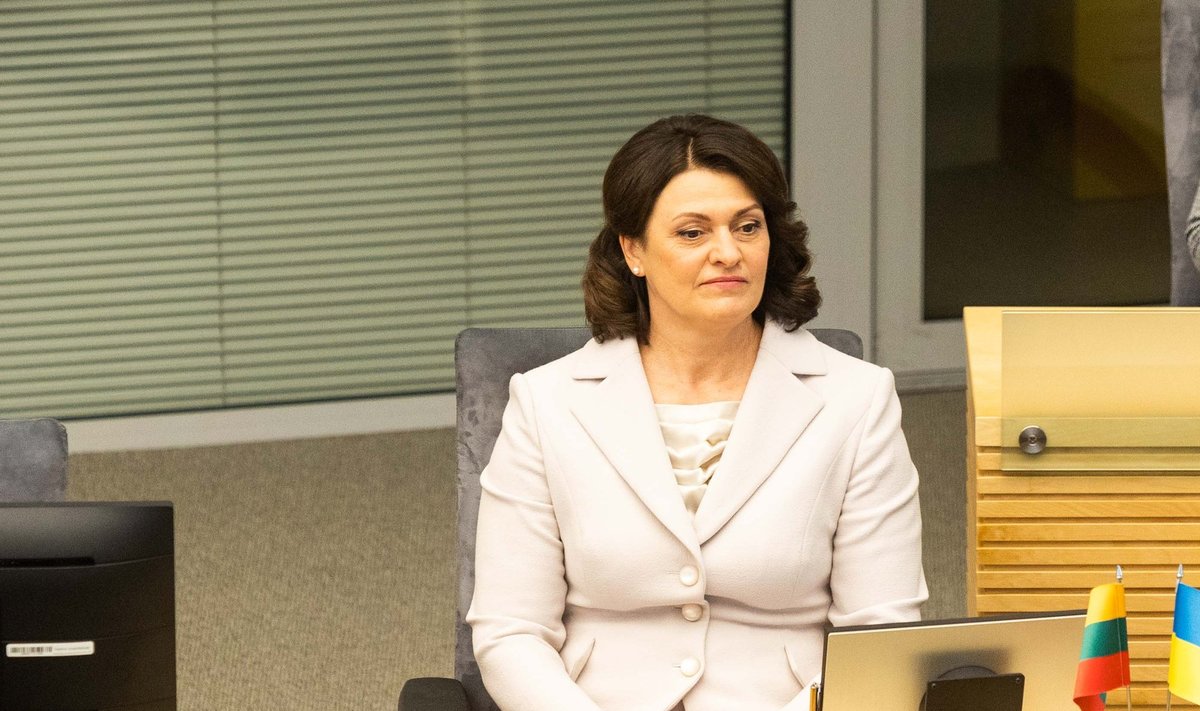In her keynote address at the session “Save the Childhood”, the first lady stressed that Russia’s war in Ukraine is not just about territory. The aggressor seeks to destroy the national identity of the Ukrainian people, break up families, drive the population into emigration, forcibly assimilate them, and deprive them of a future, and that is why bombs and missiles are falling on theatres, universities and schools.
“Every Ukrainian child is the greatest asset and the future of Ukraine, which today is being mercilessly crippled and destroyed before our eyes. It is simply our duty to defend the principles of humanism. It is the duty of every decent human being to fight for the well-being of Ukrainian children with the same perseverance and determination that Ukrainians are fighting for their freedom and the freedom of us all,” Diana Nausėdienė said.
The first lady of Lithuania stressed that, unlike previous waves of refugees in Europe, the absolute majority of Ukrainians want to return home and are waiting for the opportunity to do so. Therefore, countries hosting refugees must change their usual integration patterns.
“With Russia's fierce attacks on the Ukrainian language, culture and traditions, as well as its criminal abduction of Ukrainian children, it is our duty not only to provide humanitarian aid to the victims of war but also to help Ukrainians preserve their identity,” the first lady told an international audience in Kyiv, Warsaw, Brussels, London, and Washington.
Nausėdienė presented Lithuania’s experience in ensuring quality education for Ukrainian children, focusing on both integration and preservation of the Ukrainian identity.
Much attention was paid to the joint initiative launched by the first ladies of Lithuania and Ukraine: the Ukrainian Centre in Vilnius, which opened its door in June in cooperation with Vytautas Magnus University.
Today it has become an open space and a true Ukrainian home: a safe place in a foreign country, which will eventually evolve into Ukrainian information and cultural centre in Lithuania.
“We are also looking further ahead – we see the centre as a branch of the Ukrainian Institute in Lithuania, which would pursue educational and cultural activities, and at the same time, strengthen Ukraine’s cultural diplomacy and support Ukraine on its path to full membership in the European Union,” Nausėdienė said.
Taking part in the Second International Summit of First Ladies and Gentlemen “Ukraine and the World: The Future We (Re)Build Together” held in Kyiv at the initiative of Olena Zelenska were first ladies and gentlemen from Lithuanian, the United States, Canada, Poland, Germany, France, Belgium, Turkey, Latvia, Serbia, and Iceland, leaders of the United Nations, UNICEF, the World Health Organisation, as well as leading scientists, historians, and celebrities – musicians, actors and athletes.
The participants, attending the summit in studios located in Kyiv, Brussels, Warsaw, London, and Washington, discuss the consequences of Russia's war in Ukraine and share their experiences in addressing key humanitarian issues such as sheltering war refugees, education for Ukrainian children, psychological support, and women's leadership in a war-torn country.
